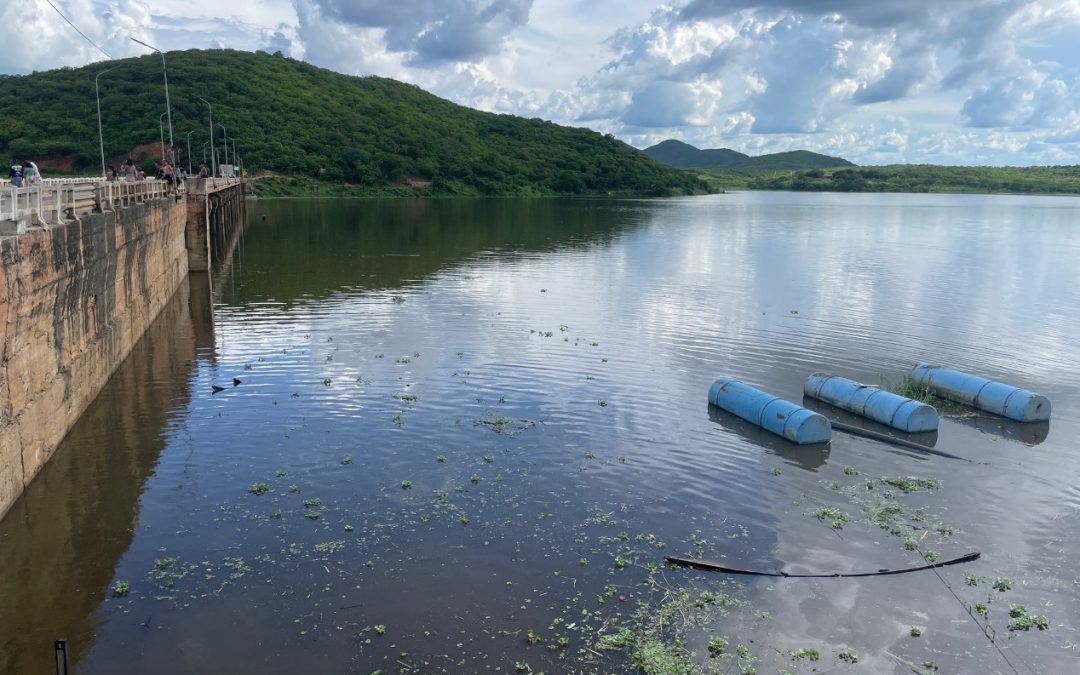Integrative Conservation Ph.D. Program
Information for Prospective Students
As global environmental change proceeds at an unprecedented pace, the practice of conservation is adapting to a complex set of new challenges. The conservation community has increasingly recognized that responding effectively to these challenges will require that the next generation of practitioners and scholars not only develop expertise in specific fields but also have the conceptual tools to work across disciplines. The University of Georgia’s Integrative Conservation (ICON) Ph.D. Program is designed to meet that need by ensuring that students gain disciplinary depth in one of five fields – Anthropology, Geography, Ecology, Forestry, or Marine Sciences – while collaborating across disciplines and fields of practice to seek integrative solutions to complex conservation challenges.
Each disciplinary focus ensures that ICON students receive rigorous theoretical and methodological training in a traditional discipline while also working integratively at the intersections of other disciplines. In addition, ICON students work directly with conservation practitioners as partners and colleagues through internships and collaborative research projects. These experiences ensure that students learn to communicate effectively and strategically with various audiences.
The University of Georgia confers doctoral degrees in Integrative Conservation in the following areas of emphasis:
- Integrative Conservation with an Area of Emphasis in Anthropology
- Integrative Conservation with an Area of Emphasis in Ecology
- Integrative Conservation with an Area of Emphasis in Forestry and Natural Resources
- Integrative Conservation with an Area of Emphasis in Geography
- Integrative Conservation with an Area of Emphasis in Marine Sciences
Prospective students must apply to the ICON program through one of the five departments listed above. We strongly encourage applicants to identify and speak with a prospective advisor prior to applying. Applicants should follow the admissions guidelines of the UGA Graduate School, the chosen home department, and the ICON program.
How to Apply
Thank you for your interest in the Integrative Conservation (ICON) Ph.D. Program! Applications to the ICON Ph.D. Program must come through one of the five home departments: Anthropology, Ecology, Forestry and Natural Resources, Geography, or Marine Sciences. You should follow the admissions guidelines of the UGA Graduate School, your chosen home department, and that of the ICON Program. ICON applications are due on or by December 1st to be considered for graduate assistantships and to have an admissions interview scheduled with our Graduate Affairs Committee. Information on UGA student fees can be found here. Participation in certain programs may qualify you for an application fee waiver; please check the Graduate School website for a complete list of participating programs and instructions on how to apply for an application fee waiver.
Below we’ve listed key steps to prepare your application.
- Find a prospective advisor: We depend heavily on a prospective faculty advisor’s willingness and enthusiasm for applicants in the admission process. We strongly encourage you to identify and contact a prospective advisor before applying. This page lists faculty most closely affiliated with the ICON Program and is good place to start; however, any faculty member from the five participating units can serve as an ICON student advisor. Please note that we request statements of support from prospective advisors during the application review process.
- Apply by the deadline: The December 1st deadline is for ICON applicants from all five participating units; even if your home unit has a later deadline, you must submit materials on or by December 1st to be considered for ICON admission. When completing the online Graduate School application, please be sure to select from the following degree options: Integrative Conservation and Arts and Sciences (Ph.D.) (with Area of Emphasis in Anthropology OR with Area of Emphasis in Geography OR with Area of Emphasis in Marine Sciences); Integrative Conservation and Ecology (Ph.D.) with an Area of Emphasis in Ecology; or Integrative Conservation and Forestry and Natural Resources (Ph.D.) with an Area of Emphasis in Forestry and Natural Resources.
- Submit the ICON essay by December 1: In addition to departmental application requirements and Graduate School requirements, you must also complete the ICON supplemental essay. Please submit your ICON essay via the Graduate School application portal by December 1st.
PLEASE NOTE: Admissions interviews will only be scheduled for those applicants with completed applications submitted by December 1st (a complete application includes the ICON supplemental essay) and a faculty member willing to serve as their advisor.
Regarding funding: Student funding models differ from department to department, and from lab to lab. We strongly encourage you to ask prospective advisors about opportunities for assistantships and research support. Students in the ICON Program are typically funded on ICON research assistantships, departmental teaching or research assistantships, or advisor’s grants.
ICON PhD Degree Requirements
- Required ICON Coursework
-
-
- ICON 8001 – Principles of Integrative Conservation I: Theoretical foundations of an integrative approach (4 credit hours)
- ICON 8110 – Field Planning and Preparation (1 credit hour)
- ICON 8002 – Principles of Integrative Conservation II: Application of integrative principles and perspectives through case studies (4 credit hours)
- ECOL 8400 – Perspectives on Conservation Ecology and Sustainable Development (1-2 credit hours)
- ICON 8111e – Internship with a conservation organization, government agency, or other group or agency identified as appropriate (3-8 credit hours)
- Minimum of two (2) additional graduate-level courses decided by the student and his/her committee (minimum 5 credit hours)
-
- Degree requirements for home department
- Participation in integrative activities
-
-
- Organized ICON Network and Cooperative (OINC) student organization
- Symposium on Integrative Conservation (SIC)
- Integrative Conservation Conference (ICC)
-
- Dissertation incorporating integrative perspective and strategic communication
Quick Links
Resources for ICON students & faculty
- ICON Program Policy Documents
- ICON Resources
- UGA Campus Resources
- Graduate School forms
- Student Affairs
- University Well-Being Resources
- Office of Student Care and Outreach
- Accessibility and Testing
- Emergency Support Funds
- Office of Institutional Diversity
- Pride Center
- University Health Center
- Counseling & Psychiatric Services
- Relationship & Sexual Violence Prevention
- Office of Financial Aid
- UGA Athena
- UGA Academic Calendar
- General Student Information Portal
- Guide to campus recycling, composting, and waste reduction
Points of Contact
Ravneet Kaur
Integrative Conservation Student Organization Co-chair
Bhavya Iyer
Integrative Conservation Student Organization Co-chair
Latest ICON News

Research by Cydney K. Seigerman and colleagues looks at actions taken in response to extreme rainfall events
Congratulations to ICON PhD Candidate, Cydney K. Seigerman, and co-authors on their new publication, “At the extremes: Assessing interrelations among the impacts of and responses to extreme hydroclimatic events in Ceará, Northeast...
2024 ICON Program Awards Announced!
We are excited to announce the winners of the 2024 ICON Program Awards! Alli Hofner (ICON & Anthropology PhD Candidate) receives the ICON Agile Scientist Award Cydney Seigerman (ICON & Anthropology PhD Candidate) receives the J. Peter...

Asif Sandeelo: Journalism, law and endangered species conservation
Asif Sandeelo, ICON and Anthropology PhD candidate, with co-author Shabina Faraz, recently published an article in Pakistan's The Express Tribune on the intersection of journalism, law and endangered species conservation. You can read the full article here.

Amit Kaushik: Interview with Dr. Alia Dietsch, of Ohio State University
Pictured above, ICON student Amit Kaushik Amit Kaushik, ICON and Anthropology PhD student, along with co-host Jenny Oren, recently had the opportunity to interview Dr. Alia Dietsch as part of his engagement with the Social Science Working Group of the Society for...
For more information, please contact Dr. Jesse Abrams, ICON Program Graduate Coordinator (iconphd@uga.edu).

